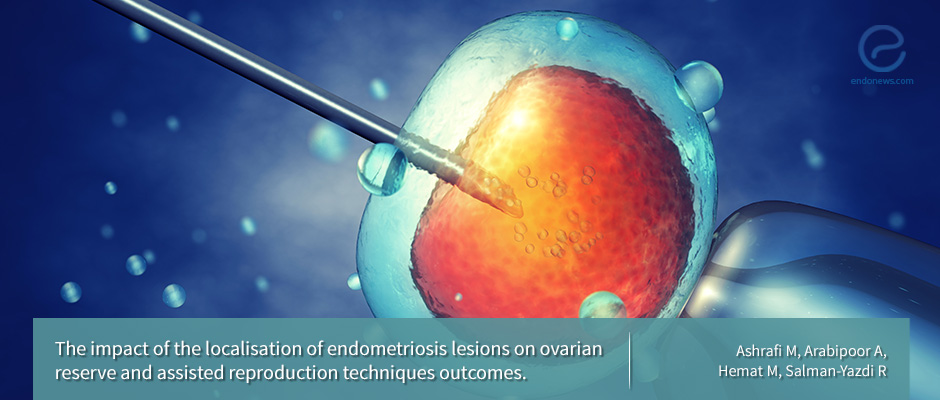How Ovarian Endometriomas and DIE affect ART outcomes
Nov 5, 2018
Presence of DIE, Ovarian Endometrioma, and hormonal aberrations have varying effects on ART outcomes
Key Points
Highlights:
- Presence of DIE, ovarian endometrioma, and hormonal aberrations have varying effects on ART outcomes based on recent results published in the Journal of Gynaecology.
Importance:
- Understanding how different types of endometriosis affects ART will help counseling regarding the success rate of IVF or ICSI/embryo transfer cycles, and to guide medical and surgical therapies to optimize fertility rates for women with endometriosis who wish to become pregnant.
What's done here:
- This case-control study was designed to evaluate the impact of endometriosis and the presence of ovarian endometrioma (OMA) on serum AMH level and to compare the in vitro fertilization/intracytoplasmic sperm injection (IVF/ICSI) outcomes after therapeutic surgery in endometriosis patients who have ovarian endometrioma.
Key Results:
- Presence of DIE with or without OMA was associated with a significant decrease in the AMH level, AFC and OSI.
- The total number of the retrieved oocytes in patients with the presence of OMA, DIE and the coexistence of both significantly were lower than those of the control group.
- Patients with a coexistence of OMA and DIE needed more FSH doses for their ovarian stimulation in comparison to that of the control group (p < .001).
- The presence of an OMA alone has no effect on clinical pregnancy and live birth rates. However, the presence of DIE negatively affects both.
Limitations: Controls were not screened for asymptomatic endometriosis or specified as to what severe male factor infertility was defined as.
Lay Summary
Previous studies have evaluated the impact of an ovarian endometrioma on ovarian reserve and its impact on the success of assisted reproductive technology (ART) outcomes have controversial results.
ART is a method by which a woman’s own hormones are used in a controlled and timed clinical setting to achieve fertility. One such hormone, anti-Müllerian hormone (AMH) is routinely used to predict how well a woman is likely to respond to ovarian stimulation for in vitro fertilization (IVF) treatment and what doses of hormones should be used during IVF. Previous studies have shown that the presence of ovarian endometriosis decreases the outcomes of ART due to its impact on controlled ovarian stimulation.
This case-control study published by Ashrafi et. al from the Reproductive Biomedicine Research Center, Tehran, Iran in the Journal of Obstetrics and Gynaecology aimed to evaluate the impact of endometriosis on IVF outcomes after therapeutic surgery. They included 152 infertile women below the age of 40 with symptoms consistent with endometriosis and used 131 woman the control group who were thought to be infertile due to “male factor infertility”. Presence of endometriosis was based on surgical detection and histologic confirmation. Using Serum anti-mullerian hormone (AMH) levels and IVF/Intracytoplasmic sperm injection (ICSI), outcomes were compared according to the extent of endometriosis (via the ASRM classification) and the presence of an ovarian endometrioma.
The results of the study found that the severity of endometriosis could affect the ovarian reserve and COS outcomes; however, the existence of DIE alone and in combination with OMA was found to be associated with a decreased live birth rate in endometriosis patients. Additionally, the existence of OMA alone is not effective on pregnancy outcomes. Therefore, workup of the extent, location, and character of each women's endometriosis should be accomplished for appropriate pre-treatment counseling.
Research Source: https://www.ncbi.nlm.nih.gov/pubmed/30257599
fertility endometriosis pregnancy ART endometrioma DIE antimullerian hormon IVF

